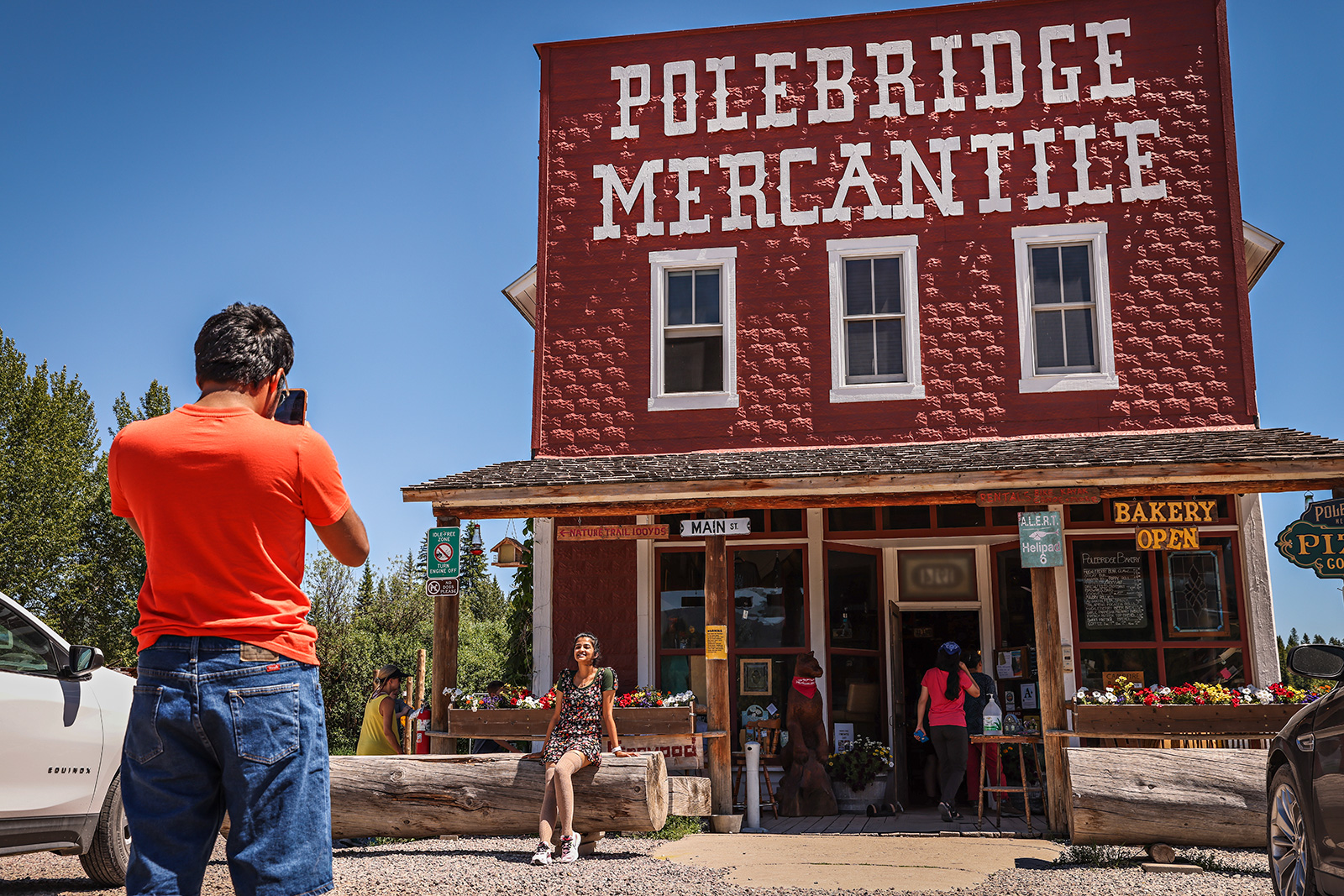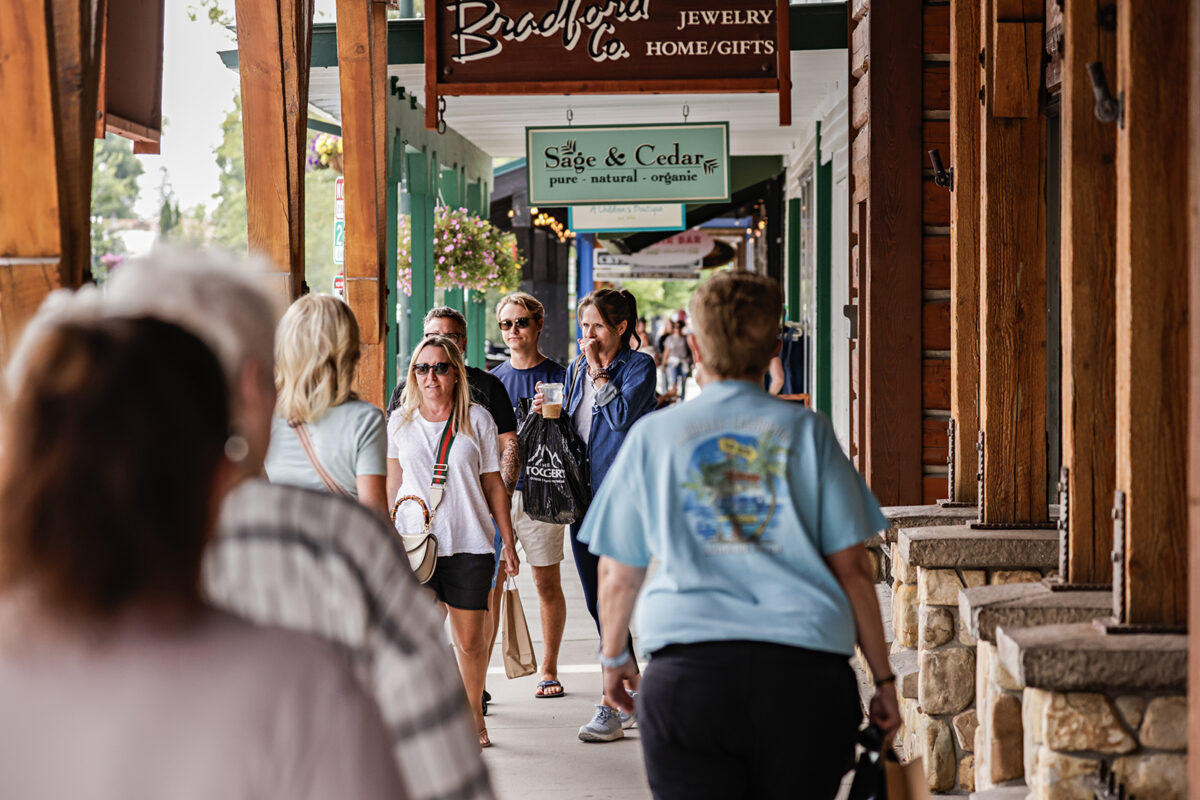Flathead Valley Stakeholders Say Property Tax Relief Bill Would Curb Tourism, Destabilize Local Economy
A bill proposed by Sen. Carl Glimm, R-Kila, would redirect tourism tax revenue to a property tax relief account, cutting funding for travel research and small business support programs. Industry officials warn it would hurt Montana’s tourism-dependent economy.
By Denali Sagner
Tourism officials and small business owners from across Flathead County and Montana warn that a property tax relief bill introduced in the Montana Legislature would cut funding from critical research and economic development programs, destabilizing the state’s tourism-dependent economy.
Senate Bill 90, introduced by Sen. Carl Glimm, R-Kila, would redirect revenue from Montana’s lodging and rental car taxes into a property tax relief account, reducing or cutting funding for tourism and historic preservation programs. The Senate Local Government Committee held a public hearing on the bill on Jan. 20.
The bill would create a statewide property tax assistance account funded by portions of lodging facility and rental vehicle taxes. The Department of Revenue each year would retain 2% of the allotted funds to administer a certification program for primary residences, and the remainder of the funds would be divided up and returned to Montana primary residence owners, or individuals who own a home in the state and live there for seven or more months out of the year.
The legislation would redirect 65.5% of the lodging facility use tax, 82% of the lodging sales tax and 75% of the rental vehicle tax to the new property tax assistance account, pulling funding from the state’s general fund and tourism-related programs. If passed, SB 90 would eliminate numerous programs, including Made in Montana marketing, which helps promote locally made goods; the Montana Film Office; the Montana Main Street Program, which helps fund revitalization and historic preservation in Montana’s downtowns; agritourism grants; emergency services travel-related grants; and tribal tourism small business grants. Many of the impacted programs work to drive tourism to seldom-visited parts of Montana, study tourism patterns, and promote local products, community events and historic preservation in towns across the state.
The bill would also cut $1.5 million in funding for the University of Montana’s Institute for Tourism and Recreation Research, which provides interactive data on Montana’s tourism economy.
If passed, each primary residence owner in Montana could expect to see $437 in property tax assistance in 2026, per a fiscal analysis by the Governor’s Office of Budget and Program Planning.
The bill was initially introduced by a bipartisan group of Flathead Valley lawmakers — Republicans Glimm, Rep. Amy Regier, Senate President Matt Regier, Sen. Mark Noland and Democratic Sen. Dave Fern. Fern, who serves on the Senate Local Government committee, however, pulled his support for the bill after an outpouring of opposition from the business and tourism communities.
While Glimm during a Jan. 20 hearing said the bill is “an attempt to bring some property tax relief to the citizens of Montana,” dozens of small business owners, state officials and industry representatives warned that defunding tourism programs would wreak havoc on the state’s economy, ultimately decreasing statewide revenue and reducing the amount of property tax relief homeowners would see over the years.
“The Department of Commerce is acutely aware of the property tax issue in the state of Montana. This is not the answer,” Mandy Rambo, deputy director of the Montana Department of Commerce, said.
Rambo cited data from Colorado, which, in 1993, became the first state to eliminate its tourism marketing program. Per market research firm Longwoods International, Colorado’s domestic market share plunged 30% within two years of cutting its tourism research program, amounting to over $1.4 billion in economic losses. In summer resort visitation, Colorado dropped from the first to 17th among the 50 states. Colorado reinstated its tourism marketing program in 2000. The state did not regain its lost market share until 15 years later, in 2015.
Referencing Colorado as a cautionary tale, Rambo warned of “unintended consequences that could wreak havoc on Montana’s economy.”
Racine Friede, president and CEO of Western Montana’s Glacier Country, said that while the organization “appreciates the bill’s intent,” the bill would hurt a “vital and carefully built industry that supports Montana communities across our state.”
“While the popularity of the TV show ‘Yellowstone’ has undeniably brought global attention to Montana, it’s important to remember that it is a fictional drama,” Friede said. “It has been suggested that ‘Yellowstone’ could serve as [all] the advertising that Montana will ever need; however, relying solely on a fictionalized portrayal of our state really does present quite a few risks.”
Carissa McNamara, who owns Wild Horse Lavender in Plains, told the Senate Local Government Committee that agritourism grants that would be affected under Senate Bill 90 helped her and her husband open their farm up to visitors, bringing in an additional stream of revenue.
“Not all profits and not all revenue is created equal,” McNamara said, adding that while high-demand areas like Glacier and Yellowstone national parks will always see tourism, rural areas like Sanders County rely on targeted outreach.
In 2024, 60% of nights spent by non-resident visitors were in Yellowstone or Glacier country tourism regions, according to the Institute for Tourism and Recreation Research.

Even in the Flathead Valley, whose economy is supported largely by Glacier National Park, stakeholders say Senate Bill 90 would hurt local businesses and have long-term consequences for tourism.
Diane Medler, executive director of Discover Kalispell, told the Beacon Senate Bill 90 “eliminates essential programs” that drive economic growth and “is so far reaching for a short-term, smaller benefit for a longer-term, large negative impact.”
Despite popular notions that Glacier National Park and the Flathead Valley are overrun with tourists, Medler said the average annual occupancy for a Kalispell hotel is 56%.
Explore Whitefish Executive Director Julie Mullins said in a statement, “While we understand the intent of this legislation to provide short-term property tax relief, we are deeply concerned about its long-term ramifications.”
Mullins wrote, “The proposed changes would result in reduced investment in organized and beneficial destination management that sustains our vital economy and reinvestments made in our communities and our threatened wild spaces. With fewer resources to attract, retain, and manage visitor behavior, Montana would experience a decline in tourism-related tax revenue, job losses, and a diminished ability to support local economies and communities.”
Both Medler and Mullins said the data released by the Institute for Tourism and Recreation Research provides critical guidance for local businesses, lodges and outfitters as they navigate and manage tourism.
Despite the wave of opposition during the Jan. 20 hearing, Glimm, the bill sponsor, said, “Tourism is valuable. I get that. But tourism is also alive and well.”